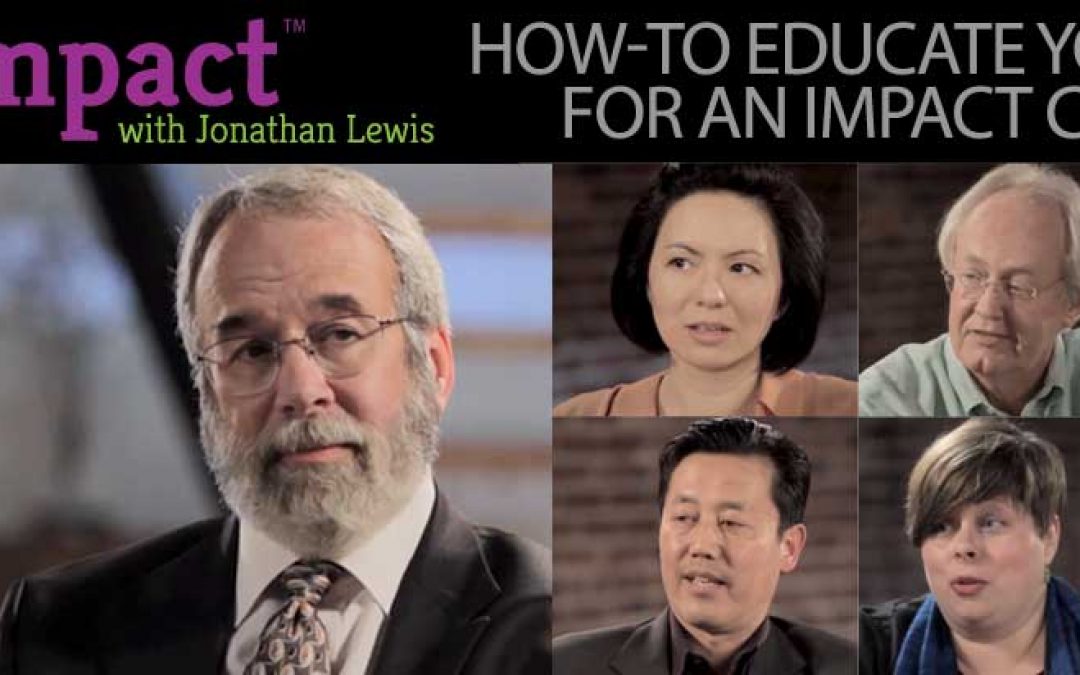“There are alternative paths” for reaching your social justice dream job, says change agent Jessamyn Lau. She should know. Her social change career began with dropping out of high school, then moved to enrolling in art school, teaching elementary school in China, earning an MBA and finally landing a plum job as the first program officer for the Peery Foundation.
In the real world of social change, life is messy. Social entrepreneurs with a diverse life experiences have distinct skill advantages: They are less absolutist and more nuanced in their problem-solving. They are better at adapting to unexpected situations. They are more resilient and able to anticipate future consequences before, rather than after, making a decision. They have more benchmarks against which to measure their own potential and real contribution to economic and social justice.
Lau’s circuitous route to social justice work is not atypical for powerhouse change-makers:
- Wanjiru Kamau-Rutenberg, founder/CEO of Akili Dada, dreamed of being a pilot, a medical doctor or Madonna before discovering her social change calling as a leadership educator for young women in Kenya.
- Yuwei Shi, Dean of the Monterey Institute of International Studies, left China and his girlfriend behind to take a high-risk stab at studying law in the United States before his path came to rest on educating and enabling the next generation of social entrepreneurs.
- Whitney Smith, founder/CEO of Girls For A Change, launched her social entrepreneurship career as a “horrible high school student and punk rocker with blue hair black lipstick.”
- Clemens Pietzner, CEO of the Triskeles Foundation, began his social justice career in California playing competitive volleyball in the Miller Lite volleyball tournament.
- Tiffany Persons, founder/CEO of Shine on Sierra Leone (and a leading Hollywood casting director), was headed to nursing school before a bad grade in organic chemistry caused her to take a film class which, in turn, led to working on a documentary which eventually spurred her to establish a community-based school in a village in Sierra Leone.
In Good to Great, Jim Collins reports that a nearly consistent attribute of successful CEOs is disciplined focus on the single thing at which they are really accomplished and then truly push towards excellence. In contrast, school teaches competency across a wide and varied curriculum.
Social entrepreneurship requires that you pursue a single passion with unbridled focus and superior execution. However, the path to professional competency as a change agent is yours to customize.
________________________
LEARN MORE
Follow Jonathan Lewis on Twitter: @SocentClinic
Special thanks to Cafe Impact.
Follow us, http://Twitter.com/NobleProfit
Like us, http://Facebook.com/NobleProfit
Register at http://NobleProfit.com to gain valuable insights in related topics.
Noble Profit is brought to you by http://CreativeEntity.Org
Creative Entity Productions http://Creative-Entity.com
Created by Amy Seidman


 Noble Profit™ is an authentic source for discovering innovation, trends and investment in clean tech, and sustainable business.
Noble Profit™ is an authentic source for discovering innovation, trends and investment in clean tech, and sustainable business.